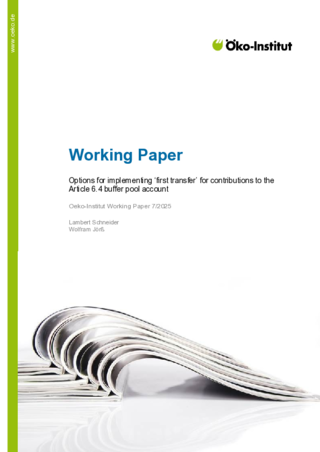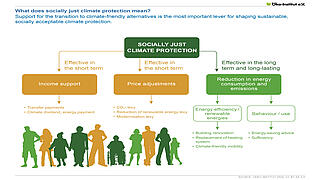Establishing a sustainable, low-carbon transport sector requires a strategic, planned and effective approach in climate policy. To achieve continuous reductions in transport sector emissions and meet the targets set in the Federal Climate Change Act, more ambitious measures are needed, beyond those currently defined at the political level. The key climate policy instruments for the transport sector – such as the promotion of e-mobility, public transport, walking and cycling; ambitious carbon pricing; a CO2 component in the motor vehicle tax and truck toll; and reforms to the commuting allowance – must be aligned, coordinated and flexible in design.
The Oeko-Institut is working intensively to identify climate policy solutions for the transport sector. Its researchers define the benefits and barriers to new and reformed policy instruments, assess the impacts of government funding schemes on the sector’s carbon footprint, and put forward practical proposals for the development of rules, taxes and surcharges. In doing so, they build on their collaboration with climate policy stakeholders and promote an equitable approach that benefits diverse demographic groups.













